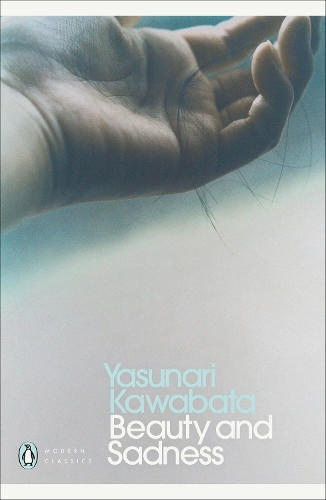
Beauty and Sadness
(Paperback)
Publishing Details
Beauty and Sadness
By (Author) Yasunari Kawabata
Translated by Howard Hibbett
Penguin Books Ltd
Penguin Classics
7th March 2011
6th January 2011
United Kingdom
Classifications
General
Fiction
Fiction in translation
895.6344
Physical Properties
Paperback
144
Width 130mm, Height 199mm, Spine 10mm
114g
Description
'One is repeatedly moved by the delicacy of the imagery and the understated precision' New Statesman The successful writer Oki has reached middle age and is filled with regrets. He returns to Kyoto to find Otoko, a young woman with whom he had a terrible affair many years before, and discovers that she is now a painter, living with a younger woman as her lover. Otoko has continued to love Oki and has never forgotten him, but his return unsettles not only her but also her young lover. This is a work of strange beauty, with a tender touch of nostalgia and a heartbreaking sensitivity to those things lost forever. Beauty and Sadness was Kawabata's final book before his suicide in 1972.
Author Bio
Yasunari Kawabata, winner of the 1968 Nobel Prize for Literature, was one of Japan's most distinguished novelists. Born in Osaka in 1899, he published his first stories while he was still in high school. Among his major novels published across the world are Snow Country (1956), Thousand Cranes (1959), The Sound of the Mountain (1972), and Beauty and Sadness (1975). Kawabata was found dead, by his own hand, in 1972. Yasunari Kawabata was born near Osaka in 1899 and was orphaned at the age of two. His first stories were published while he was still in high school and he decided to become a writer. He graduated from Tokyo Imperial University in 1924 and a year later made his first impact on Japanese letters with Izu Dancer. He soon became a leading figure the lyrical school that offered the chief challenge to the proletarian literature of the late 1920s. His writings combine the two forms of the novel and the haiku poems, which within restrictions of a rigid metre achieves a startling beauty by its juxtaposition of opposite and incongruous terms. Snow Country (1956) and Thousand Cranes (1959) brought him international recognition. Kawabata died by his own hand, on April 16 1972.
